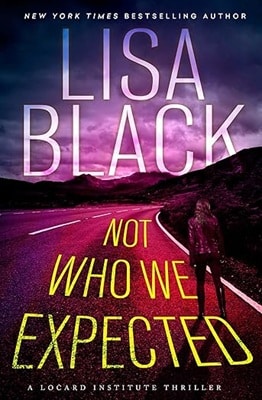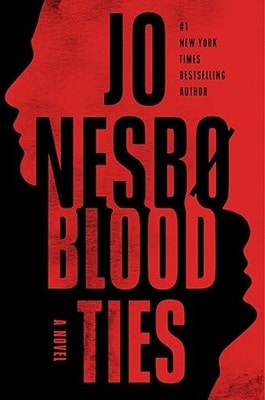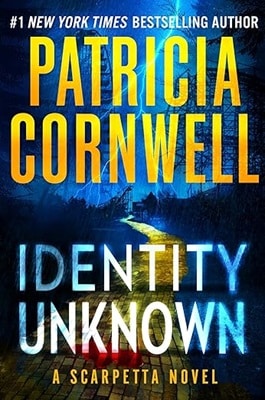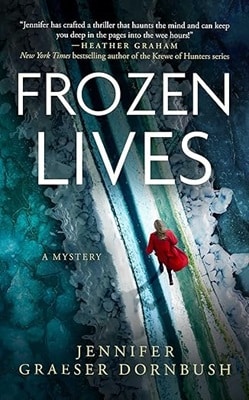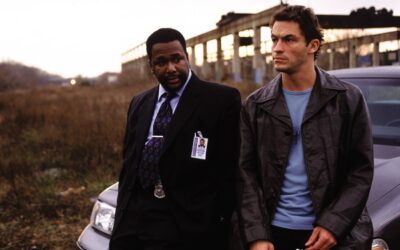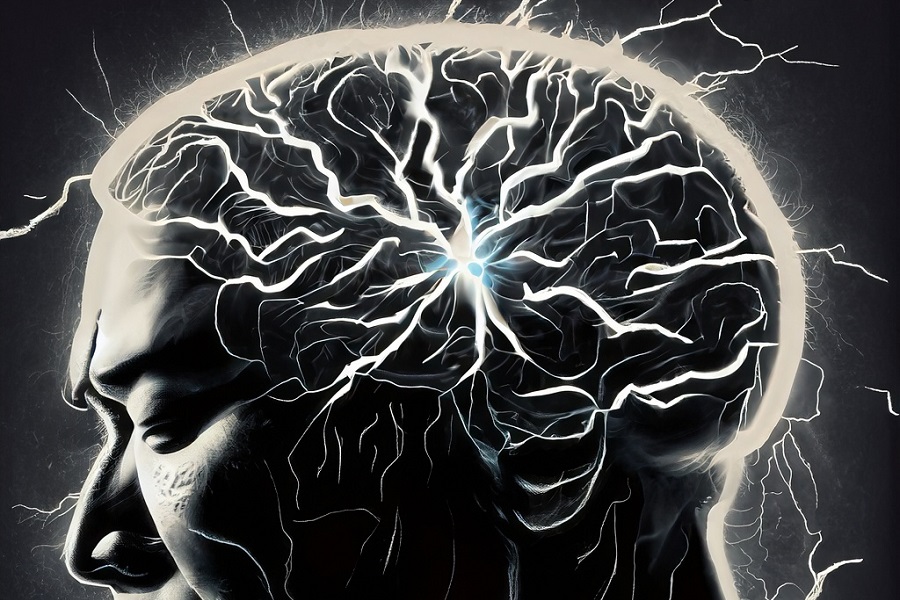
Criminal Minds
From the cunning masterminds to the cold-blooded psychopaths, crime fiction has long been a source of fascination and intrigue for readers. The exploration of the criminal mind and its inner workings seems to captivate us, drawing us into a world of suspense, danger, and mystery.
But what is it about these twisted characters that keeps us hooked, turning page after page? In this article, we will delve into the complex and enigmatic world of crime fiction’s most notorious criminal minds to unravel the allure of their dark and dangerous personas.
The Human Mind: A Source of Endless Curiosity
Our fascination with the human mind stems from its remarkable complexity and diversity. As one of the most intricate and enigmatic aspects of human existence, the mind has captivated scientists, philosophers, and artists alike throughout history. In the realm of crime fiction, this fascination extends to the exploration of criminal minds, which often embody extreme manifestations of human psychology and behavior.
The Lure of the Unknown
One of the key factors that make the criminal mind so intriguing is the sense of mystery and the unknown that surrounds it. The inner workings of a criminal’s thoughts and motivations can be difficult to comprehend, particularly when their actions deviate significantly from societal norms. This challenge to understand the seemingly incomprehensible drives our curiosity, as we seek to make sense of the darker aspects of human behavior.
The Nature vs. Nurture Debate
The longstanding debate about the role of nature and nurture in shaping an individual’s behavior is another aspect that fuels our fascination with criminal minds. Crime fiction often explores the interplay between genetics, upbringing, and environmental factors, prompting readers to question the extent to which these elements contribute to the development of a criminal. Are these individuals born with an innate propensity for crime, or are they molded by their circumstances? The exploration of these questions adds depth and nuance to crime fiction narratives, keeping readers engaged and invested in the story.
The Spectrum of Human Emotion
Criminal minds also provide a unique opportunity to examine the full spectrum of human emotions, including the darker and more destructive ones. While most people experience emotions like anger, jealousy, or greed to varying degrees, the criminal mind often amplifies these feelings to an extreme level. By exploring these intensified emotions through the lens of crime fiction, we gain insight into the limits of human emotional experience and the potential consequences of unchecked passion.
The Power of Empathy
Interestingly, our fascination with criminal minds can also be attributed to our capacity for empathy. As we read crime fiction and immerse ourselves in the lives and thoughts of the characters, we attempt to put ourselves in their shoes and understand their perspective. Even when faced with characters that commit heinous acts, we may still find ourselves empathizing with their struggles and pain. This empathy can lead us to question our own values and challenge our assumptions about the nature of good and evil.
The Complexity of Decision-Making
Lastly, the criminal mind invites us to consider the intricate and multifaceted nature of decision-making. Crime fiction often delves into the internal conflict and moral dilemmas faced by criminals as they grapple with the consequences of their actions. This exploration of decision-making processes allows readers to reflect on their own choices and examine the factors that influence their behavior.
The Thrill of the Chase
The pursuit of justice is a central theme in thriller fiction, often characterized by an exhilarating chase between the protagonist and antagonist. This relentless pursuit, whether physical or intellectual, is a driving force behind the genre’s appeal. But what is it about the thrill of the chase that keeps readers on the edge of their seats and eager for more?
The Adrenaline Rush
One aspect that makes the chase so captivating is the adrenaline rush it induces. The high-stakes nature of the pursuit, combined with the fast pace and ever-present danger, creates a sense of urgency that keeps readers engaged. As the protagonist navigates obstacles, outwits the antagonist, and confronts life-or-death situations, readers become emotionally invested in the outcome, eagerly turning the pages to discover the fate of the characters.
The Intellectual Challenge
The chase in thriller fiction is not only about physical pursuit but also an intellectual one. The protagonist must often rely on their intelligence, resourcefulness, and problem-solving skills to outmaneuver the antagonist. Readers are drawn to this mental chess game, trying to anticipate the characters’ next moves and solve the mystery alongside the protagonist. This intellectual challenge adds depth to the story, engaging the reader’s mind and encouraging them to think critically.
The Exploration of Human Limits
The chase in thriller fiction often pushes characters to their physical, emotional, and moral limits. The protagonist must dig deep to find the strength and resilience necessary to overcome seemingly insurmountable obstacles. This exploration of human limits provides a unique opportunity for readers to reflect on their own capabilities and consider what they might be capable of under extreme circumstances.
The Battle of Good vs. Evil
The chase often represents a larger struggle between good and evil, with the protagonist symbolizing justice and the antagonist embodying malevolence. This age-old conflict adds emotional depth to the story, as readers become invested in the triumph of good over evil. The chase serves as a metaphor for the ongoing battle between light and darkness, making the story’s outcome feel all the more significant.
The Element of Surprise
The unpredictable nature of the chase is another factor that contributes to its appeal. Thriller fiction is known for its twists and turns, with the outcome of the chase often hanging in the balance until the very end. The element of surprise keeps readers guessing, ensuring that they remain fully immersed in the story and eager to discover the resolution.
The Emotional Connection
Finally, the thrill of the chase allows readers to form a deep emotional connection with the protagonist. As they follow the character’s journey, readers become invested in their struggles, victories, and personal growth. This emotional connection encourages readers to root for the protagonist, heightening the sense of suspense and anticipation throughout the chase.
The Allure of the Taboo
Taboo subjects have long captivated the human imagination, sparking intrigue and fascination with the forbidden. Thriller fiction is no exception, as authors often delve into these controversial topics to create gripping stories that push boundaries and challenge societal norms. But what is it about the allure of the taboo that makes it such a compelling element in thriller fiction?
Temptation and Curiosity
At its core, the allure of the taboo lies in human curiosity and the innate desire to explore the unknown. Taboo subjects are typically shrouded in mystery, creating a sense of temptation that draws readers in. This curiosity is heightened when dealing with topics that are culturally or socially off-limits, as it provides an opportunity for readers to vicariously experience the forbidden through the characters and plotlines.
Confronting Fears and Anxieties
The exploration of taboo subjects in thriller fiction can also serve as a means for readers to confront their own fears and anxieties. By tackling topics that are considered “off-limits,” authors create a safe space for readers to face their deepest fears and insecurities. This cathartic experience can be both thrilling and terrifying, making for an emotionally charged reading experience that lingers long after the final page has been turned.
Challenging Social Norms
The allure of the taboo can also stem from a desire to challenge social norms and question long-held beliefs. Thriller fiction often presents alternative perspectives and sheds light on societal issues that are typically avoided in everyday conversation. By delving into these forbidden subjects, authors prompt readers to reevaluate their own beliefs and consider the complex nature of the human experience.
The Shock Factor
The inclusion of taboo subjects in thriller fiction can create a sense of shock and surprise, adding an additional layer of suspense and tension to the narrative. Readers are often drawn to the unexpected and provocative nature of these topics, as they create an element of unpredictability that keeps them guessing throughout the story. This shock factor contributes to the overall excitement and appeal of the genre.
Exploring the Dark Side of Human Nature
Finally, the allure of the taboo is closely tied to the exploration of the dark side of human nature. Thriller fiction often delves into the depths of human psyche, examining the darker aspects of desire, ambition, and morality. By exploring these taboo subjects, authors create complex, multidimensional characters that challenge readers’ perceptions of good and evil, pushing the boundaries of conventional storytelling.
The allure of the taboo in thriller fiction is multifaceted, drawing on human curiosity, the desire to confront fears and anxieties, the challenge to social norms, the shock factor, and the exploration of the dark side of human nature. By incorporating these elements into their narratives, authors create thought-provoking and captivating stories that not only entertain but also challenge readers to confront the complexities of the human experience.
The Complexity of the Anti-Hero
In recent years, the anti-hero has become an increasingly popular character type in thriller fiction. These complex, morally ambiguous figures captivate readers with their intricate blend of both admirable qualities and darker, more sinister aspects. Unlike traditional heroes, anti-heroes are not easily categorized as purely good or evil, providing a nuanced exploration of human nature that keeps readers engaged and emotionally invested. Let’s delve into the factors that contribute to the complexity and appeal of the anti-hero in thriller fiction.
Challenging Conventional Morality
One of the primary factors that make anti-heroes so intriguing is their ability to challenge conventional notions of morality. These characters often operate within a gray area, where the lines between right and wrong are blurred. Their actions may be driven by a strong sense of justice or personal code, but they are not afraid to break societal norms or even laws to achieve their goals. This nuanced portrayal of morality forces readers to question their own beliefs and consider the intricate nature of ethics and human behavior.
Relatability and Human Flaws
Anti-heroes are often characterized by their relatable human flaws, making them more accessible and authentic to readers than traditional heroes. These characters may struggle with their own vices, insecurities, or past traumas, which not only adds depth to their personalities but also allows readers to connect with them on a deeper level. By acknowledging the imperfections and vulnerabilities inherent in human nature, anti-heroes become a more realistic representation of the complexities that define the human experience.
The Redemptive Arc
Another key aspect of the anti-hero’s complexity is the potential for redemption. Many anti-heroes embark on a journey of personal growth and transformation throughout the story, grappling with their own demons and striving to overcome their darker tendencies. This redemptive arc is compelling to readers, as it not only provides a sense of hope and optimism but also illustrates the resilience of the human spirit. The possibility of redemption adds an additional layer of depth to the anti-hero, highlighting the potential for change and growth within even the most morally ambiguous characters.
Exploring the Dark Side of Human Nature
Anti-heroes allow authors to explore the darker aspects of human nature, delving into the motivations and desires that drive individuals to commit morally questionable acts. By examining the inner workings of these complex characters, thriller fiction provides insight into the psychological and emotional factors that influence human behavior. This exploration of the dark side of human nature adds a layer of intrigue and suspense to the narrative, as readers are drawn into the minds of these captivating characters.
In summary, the complexity of the anti-hero in thriller fiction lies in their ability to challenge conventional morality, their relatable human flaws, the potential for redemption, and the exploration of the dark side of human nature. By embracing these elements, authors create rich, multidimensional characters that captivate readers and provide a nuanced portrayal of the human experience. The anti-hero’s appeal lies in its reflection of the complexities and contradictions that define us all, making them an integral and enduring aspect of thriller fiction.
The Satisfaction of Resolution
One of the most compelling aspects of thriller fiction is the journey towards resolution. As readers follow intricate plots, complex characters, and suspenseful twists and turns, they eagerly anticipate the moment when all the loose ends are tied up, and the truth is revealed. The satisfaction of resolution not only provides closure but also showcases the skill of the author in crafting a cohesive and engaging narrative. Let’s explore the factors that contribute to the satisfaction of resolution in thriller fiction and why it is such an essential element of the genre.
A Test of Intellect and Deduction
Thriller fiction often invites readers to become active participants in the story, challenging their intellect and deductive reasoning abilities. As they try to decipher clues, make connections, and predict outcomes, readers are fully immersed in the narrative, eager to discover the truth behind the mystery. The satisfaction of resolution validates their investment of time and mental energy, as they experience a sense of accomplishment in piecing together the puzzle alongside the characters.
Emotional Catharsis
The journey towards resolution in thriller fiction often involves high-stakes situations, intense emotions, and gripping suspense. Readers become emotionally invested in the characters and their struggles, empathizing with their fears, frustrations, and desires. The satisfaction of resolution provides a much-needed emotional catharsis, as the tension is released, and the characters find closure or justice. This emotional release is a powerful aspect of the reader’s experience, as it allows them to process their own emotions and find a sense of relief and fulfillment in the narrative’s conclusion.
The Art of Storytelling
An essential aspect of the satisfaction of resolution is the author’s ability to weave together various storylines, character arcs, and thematic elements into a cohesive and satisfying conclusion. This narrative craftsmanship is a testament to the skill of the author, as they navigate the delicate balance between maintaining suspense and providing resolution. A well-crafted resolution demonstrates the author’s mastery of storytelling, leaving readers in awe of their ability to unravel the tangled web and deliver a satisfying and memorable ending.
Understanding Human Nature and Motivations
The resolution of a thriller often sheds light on the motivations, desires, and psychological underpinnings of the characters involved. As the truth is revealed, readers gain a deeper understanding of human nature, exploring the complex interplay between external circumstances and internal drives that shape individuals’ actions and choices. This insight into the human condition adds depth and resonance to the story, as readers are left with a greater understanding of the characters and the world they inhabit.
The satisfaction of resolution in thriller fiction is derived from several factors, including the test of intellect and deduction, emotional catharsis, the art of storytelling, and the exploration of human nature and motivations. As authors skillfully unravel the tangled web of their narratives, they provide readers with a sense of closure and fulfillment, ensuring that their investment in the story is rewarded with a satisfying and thought-provoking conclusion. The resolution is an essential element of the thriller genre, leaving readers with a lasting impression and a desire to embark on yet another thrilling literary journey.
The criminal minds that populate the pages of crime fiction novels captivate us for numerous reasons – from the opportunity to explore the darker side of human nature to the thrill of the chase and the satisfaction of resolution. By unraveling the enigma of these complex characters, we are able to better understand our own fascination with the world of crime fiction, and the allure of the criminal minds that lie at its dark heart.
More Crime Thrillers
Crime Thriller Features
Literary Crime
Where Depth Meets Deceit
Criminal Fashion
Iconic Outfits and Styles in Crime Fiction
Ethics in Crime Fiction
Exploring Morality in Law and Order

